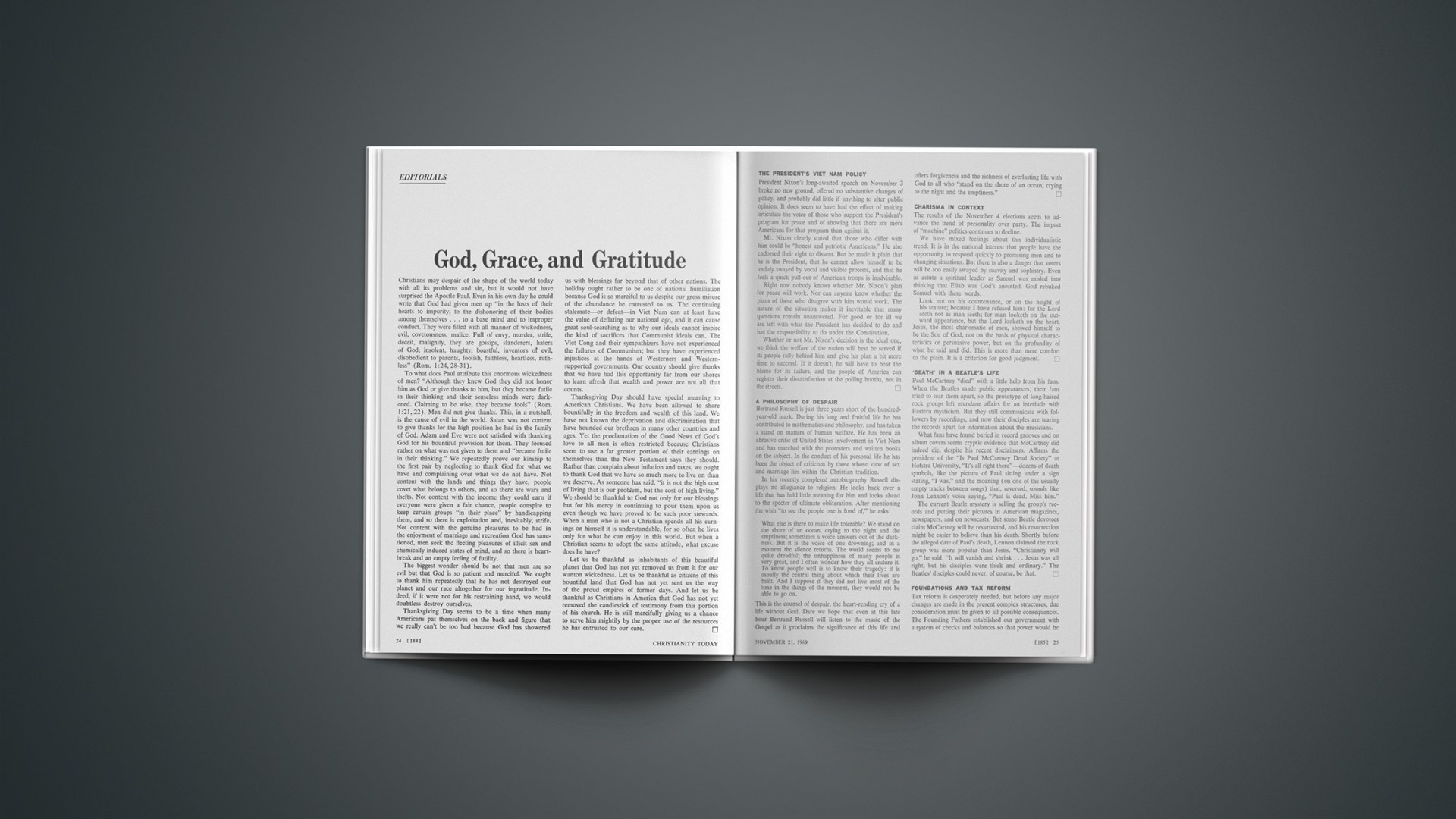Tax reform is desperately needed, but before any major changes are made in the present complex structures, due consideration must be given to all possible consequences. The Founding Fathers established our government with a system of checks and balances so that power would be diffused rather than concentrated. Over the decades new institutions have arisen, usually of necessity, which serve as checks on one another.
More and more spending is coming under the aegis of the government, often because of default in the private sector. The value of foundations is that they are a source of income outside the government for many activities that do not obtain support from private investors.
No one approves of every activity of every foundation, and certainly foundations that are set up primarily to evade taxes and provide other personal benefits for those who establish and run them should not enjoy special privileges. However, restrictions upon the freedom of foundations to perpetuate themselves and distribute their funds as they see fit, within certain limits, can only have the effect of further centralizing power in the government and curtailing one of the checks and balances our system has evolved. It is impossible to keep political considerations out of government administration of funds. Foundations, however, are able to support politically and socially unpopular ventures.
We much prefer the risks of allowing activities of which we disapprove to receive foundation support to the dangers of tending to make the government the sole significant benefactor from which support can be obtained. Abuses by some foundations do not warrant restrictive legislation against them all. Instead we should encourage and strengthen these institutions that help to maintain decentralization of power in the face of trends to concentrate it.










